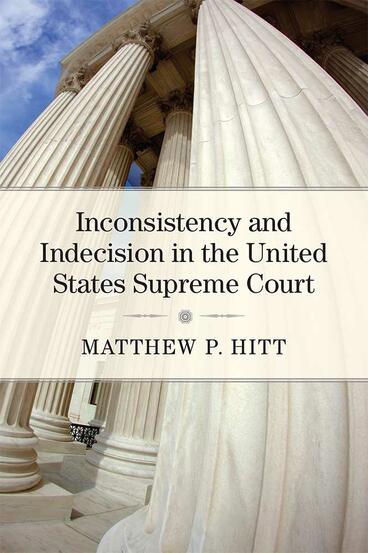Inconsistency and Indecision in the United States Supreme Court
The Supreme Court cannot be both efficient and consistent, and thus fails in its Constitutional mandate
Description
The United States Supreme Court exists to resolve constitutional disputes among lower courts and the other branches of government, allowing elected officials, citizens, and businesses to act without legal uncertainty. American law and society function more effectively when the Court resolves these ambiguous questions of Constitutional law. Since lower courts must defer to its reasoning, the Court should also promulgate clear and consistent legal doctrine, giving a reason for its judgment that a majority of justices support.
Yet a Court that prioritizes resolving many disputes will at times produce contradictory sets of opinions or fail to provide a rationale and legal precedent for its decision at all. In either case, it produces an unreasoned judgment. Conversely, a Court that prioritizes logically consistent doctrine will fail to resolve many underlying disputes in law and society. Inconsistency and Indecision in the United States Supreme Court demonstrates that over time, institutional changes, lobbied for by the justices, substantially reduced unreasoned judgments in the Court’s output, coinciding with a reduction in the Court’s caseload. Hence, the Supreme Court historically emphasized the first goal of dispute resolution, but evolved into a Court that prioritizes the second goal of logically consistent doctrine. As a result, the Court today fails to resolve more underlying questions in law and society in order to minimize criticism of its output from other elites. In so doing, the modern Court often fails to live up to its Constitutional obligation.
Matthew P. Hitt is Assistant Professor of Political Science at Colorado State University.
Reviews
“Hitt addresses an important and interesting question in the study of law and courts: What happens when the Supreme Court issues a decision in a case but fails to establish a clear precedent? Hitt provides a systematic and sophisticated analysis that sheds significant light on these important phenomena. An engaging and elegant read, this book will be enjoyed by anyone with interests in judicial politics or legal development.”
—Ryan C. Black, Michigan State University
“The author sets out to accomplish an ambitious task and, in my view, achieves that task. The phenomenon under investigation has not received sufficient attention in the extant literature and the author's treatment of it is both wide and deep.”
—Wendy Martinek, Binghamton University
"Inconsistency and Indecision is a valuable contribution to the field, representing a significant advance in our understanding of Supreme Court decision making and of the impact those decisions have on lower courts, Congress, and the public."
- Pamela C. Corley, Southern Methodist University
-- Perspectives on Politics
"Inconsistency and Indecision in the United States Supreme Court is an important addition to the Supreme Court and judicial politics literature... this book engages a complex subject that is presented in a way that is easy to understand."
- Ali Masood
—Law and Politics Book Review

